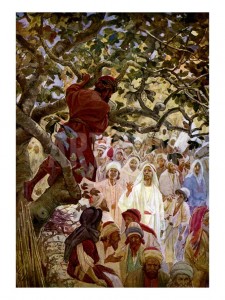Luke 23:33-43
This text is used for the Lectionary Year C on November 20th, 2016.
 The final few chapters of Luke’s Gospel places an emphasis on reversing the expectations of the hearers. The Gospel reading from last week promised God’s nearness in our troubles, that even when we can’t escape our sufferings, God endures along with us. One of the details we tend to remember of the crucifixion story is when Jesus felt abandoned by God. However, Luke’s narrative excludes that moment, choosing instead to elaborate on the notion of God’s nearness in the midst of suffering. It’s certainly not what one would expect.
The final few chapters of Luke’s Gospel places an emphasis on reversing the expectations of the hearers. The Gospel reading from last week promised God’s nearness in our troubles, that even when we can’t escape our sufferings, God endures along with us. One of the details we tend to remember of the crucifixion story is when Jesus felt abandoned by God. However, Luke’s narrative excludes that moment, choosing instead to elaborate on the notion of God’s nearness in the midst of suffering. It’s certainly not what one would expect.
Recalling last week’s Gospel reading (Luke 21), Jesus describes the course of events to unfold for his followers. We come to discover in brutally, eerie fashion, that Jesus ends up experiencing much of what he predicted they would experience in the years to come; persecution, trials, and imprisonment. Just as the temple will be torn down, so this week we see the guards tearing down Jesus, garments and all. Not what one would expect of God’s Messiah.



